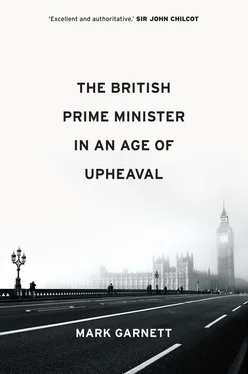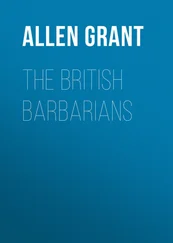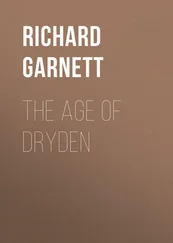By 2019, the balance of deference had been reversed, and many MPs felt compelled to surrender their personal views whenever these conflicted with the perceived preferences of grassroots members. The last vestige of Walter Bagehot’s ‘electoral college’ had been removed. The only lingering residue of the old ways is the reluctance of individuals who hope to be candidates in any party-wide ballot to betray their hopes of a change of leader too openly. Thus as soon as Theresa May began to look like a ‘lame duck’ leader after the 2017 general election, Boris Johnson’s prominent antenna of self-advancement started twitching, but he had to curb his enthusiasm, no doubt remembering the fate of another former MP for Henley, Michael Heseltine, who explained his failure to succeed Margaret Thatcher in 1990 by saying that ‘In our party, the man who wields the dagger never picks up the crown.’ This dictum had already been disproved (albeit in 1975 the assassin who had been rewarded was a woman rather than a man). 4Indeed, if in 1990 the Conservatives had already given the final say over the choice of leader to the party as a whole rather than restricting it to MPs, Heseltine’s chances of picking up the crown would have been much better than under the prevailing rules, which entrusted the decision to guilt-wracked Tory MPs rather than the constituency members whose support Heseltine had been cultivating carefully since his resignation from the Cabinet in 1986.
There is, of course, a perfectly respectable case to be made for parties choosing leaders who reflect the views of their most radical supporters. If such individuals prove capable of generating country-wide enthusiasm, the choice will have been vindicated. If not, the results will become apparent at the next general election, if not before; and party members can decide for themselves whether they want to repeat the mistake. However, the effects of the first-past-the-post electoral system – and the advantages enjoyed by the two main UK parties in terms of media support, financial resources, ‘brand recognition’, etc. – mean that even if leaders have become a crucial element in voters’ choices (see chapter 6) a party which makes a bad decision is unlikely to suffer the full consequences. A more serious situation arises when both of the major parties choose leaders who are viewed negatively by a majority of voters. Thanks to the distortions of the electoral system, this means that Britain can be left with a Prime Minister who is distrusted (even despised) by a majority of his or her own parliamentary colleagues. If, as we have argued, Prime Ministers are ‘majority leaders’ because of the position they hold, the individual whose party prevails in this unpopularity contest will stand a good chance of serving a full term in office.
Between 1979 and the 2016 EU referendum, the ‘received wisdom’ was that MPs provided governments with ‘lobby fodder’, and that even those who expressed reservations about specific government policies would come round in the end. This assumption explains at least some of the odium visited upon MPs during the expenses scandal of 2009; indeed, if MPs had been regarded as conscientious servants of the public the ‘scandal’ would probably have been restricted to one or two egregious examples, rather than affecting very trivial offenders like the then Prime Minister Gordon Brown and the Opposition leader David Cameron.
As we have seen, whatever the justice of other complaints levelled at Parliament, in recent decades MPs have certainly not been guilty of excessive obedience to their party whips. Rebellions have become far more frequent, and the roll call of dissidents in the two main parties has grown. During the Thatcher years many Conservative MPs (even senior ministers) felt compelled to support government policy against their private convictions. But under her successor, John Major, rebel leaders became heroes rather than pariahs. These individuals were fully fledged rebels, in that they were trying to change the party’s established policy of reluctant engagement with ‘Europe’ into one of outright opposition. Under Tony Blair the balance changed, since almost every Labour MP who decided to enter the government lobby on issues like welfare, health and education had to do so in defiance of private convictions, and/or previous public pledges. Back in 1956, an American political scientist wrote that a key constraint on the position of Prime Minister was ‘the necessity of not taking action which is clearly unpalatable to large numbers of their party supporters’ (Carter, 1956, 262). Blair was untroubled by this consideration, further entrenching the resolve and credibility of serial rebels but consoling himself with the thought that, as in PMQs, the executive would always have the last laugh.
On the face of it Brexit was a game-changer which suddenly handed all of the cards to MPs. David Cameron had been forced to call a referendum because of a breakdown of discipline amongst Conservative MPs under the combined weight of developments within both major parties since 1979. Theresa May, who inherited Cameron’s dilemma along with his position, tried to solve this problem by excluding Parliament from the Brexit process. Thwarted by the courts, she exposed the absurdity of the Fixed-Term Parliaments Act (for which she herself had voted) by engineering a general election in the expectation that this would provide her with a more compliant Parliament. Although May’s power-grab failed, for students of the prime ministerial role the most significant thing is that she made the attempt. Her successor, Boris Johnson, fared better. Although some elements of his story were those of an archetypal ‘insider’, other aspects – his appearances in quiz shows, but also (ironically) his failure to shine in the Commons before becoming a populist Mayor of London – fitted him for the role of champion of the people against Parliament (and the courts). For the first time in nearly a decade, after the general election of December 2019 Britain had a Prime Minister who was unquestionably Majority Leader; but it remained to be seen how long he could retain even its nominal confidence.
1 1. HC Deb 22 November 1990, vol. 181, cc. 452, 454.
2 2. https://www.publicwhip.org.uk/mp.php?id=uk.org.publicwhip/member/1806&showall=yes#divisions
3 3. https://www.theguardian.com/politics/2001/aug/23/uk.euro1
4 4. https://www.independent.co.uk/voices/letter-who-wields-the-knife-can-win-the-crown-1495144.html
Конец ознакомительного фрагмента.
Текст предоставлен ООО «ЛитРес».
Прочитайте эту книгу целиком, купив полную легальную версию на ЛитРес.
Безопасно оплатить книгу можно банковской картой Visa, MasterCard, Maestro, со счета мобильного телефона, с платежного терминала, в салоне МТС или Связной, через PayPal, WebMoney, Яндекс.Деньги, QIWI Кошелек, бонусными картами или другим удобным Вам способом.












